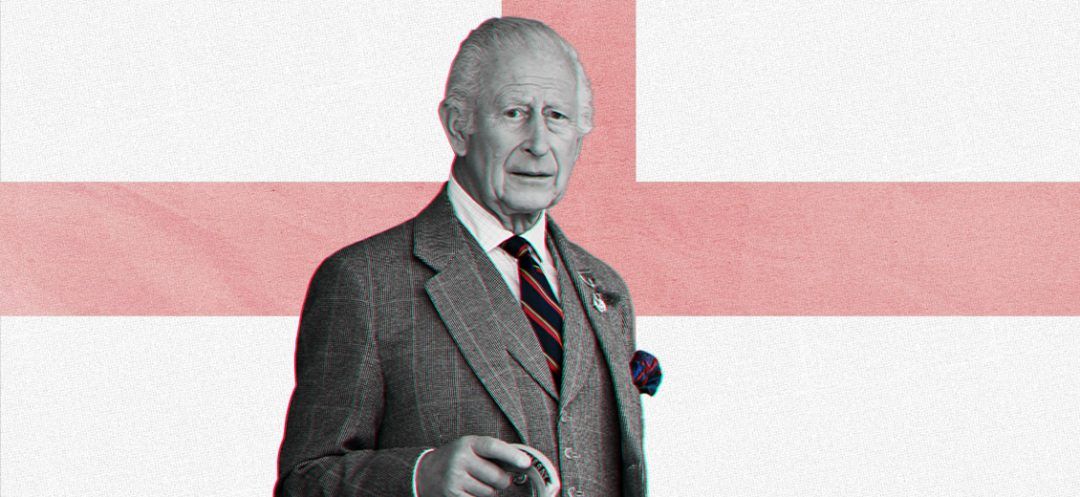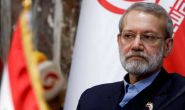- Home
- Middle East
- Charles III: A Trying Two Years

Since the passing of Queen Elizabeth II two years ago, the British monarchy has faced particularly trying times. From family feuds to health concerns within the royal family, the past two years have been tumultuous. However, King Charles III has managed to embody monarchical continuity with dignity, proving that, although it is difficult to match his mother’s popularity, he can still govern with confidence and ensure the monarchy's longevity. Many admirers of the crown thus praise his ability to carry on the legacy of stability left by Queen Elizabeth II.
Undoubtedly, the greatest challenges currently facing the British monarchy concern the serious health issues of King Charles III and Catherine, the Princess of Wales. The latest significant development occurred on September 9, when a video posted on social media by the Prince and Princess of Wales announced that Kate had completed her six-month chemotherapy treatment.
This medical process requires a very gradual return to royal duties, marking a long period of transition before she fully resumes her official functions. It is worth noting that, despite health challenges, King Charles III continues to fulfill his constitutional duties with rigor. In fact, he resumed his official royal engagements a few months ago at a nearly normal frequency. Regarding Princess Kate, although she has attended some major events, such as Trooping the Colour – a British annual military parade – and the Wimbledon final, she remains in recovery, and her public appearances are still limited.
As a reminder, on January 17, Buckingham Palace and Kensington Palace announced, just an hour apart, that the King and the Princess of Wales would be hospitalized at the London Clinic in Marylebone. The King was to undergo surgery for benign prostate enlargement, while the Princess was scheduled for major abdominal surgery. The King's choice to be fully transparent about his health, revealing a few days later that he had cancer, marked a significant departure from Queen Elizabeth II’s communication practices, signaling a shift toward a more modern and accessible approach. This transparency has also reassured the public, concerned about the health of their beloved monarch. In contrast, the more awkward communication strategies around the health of the Princess of Wales have sparked strong criticism and fueled the most outlandish conspiracy theories. The controversy was particularly fueled by the publication, on March 10, of a doctored family photo for Mother's Day, followed by a long silence until Kate’s on-camera announcement revealing her cancer diagnosis on March 22.
Another major challenge during the first two years of Charles III’s reign, which will continue to impact the monarchy's future, is the delicate handling of Prince Andrew’s case. As a reminder, Prince Andrew, the King's brother and the third child of Queen Elizabeth II, was accused of misconduct in connection with the Epstein case, involving allegations of sex trafficking and abuse of a minor, which he has always denied. His popularity has dramatically plummeted, and any leniency towards him could tarnish the monarchy's image. Since his withdrawal from public life during his mother’s reign, he no longer benefits from taxpayer funding, which was only a part of the royal budget anyway. Now, he lives thanks to private support from Charles III’s personal fortune. According to recent revelations by The Daily Telegraph, the King has increased pressure on the Duke of York by dismantling his private security team of ten officers. This means that Prince Andrew will have to finance his own future security operations if he wishes to keep his residence at Royal Lodge, Windsor, and avoid possible eviction. This development has reinforced speculation that the King seeks to evict him from Royal Lodge, even though Prince Andrew seemed to believe his brother would not make such a decision.
There is also the ongoing issue with the rebellious Duke and Duchess of Sussex, Prince Harry, the King’s youngest son, and his wife Meghan Markle. After marrying in 2018 at St George's Chapel, Windsor Castle, the couple decided to step back from royal life in 2020 before moving to the United States the following year. Since then, relations between Prince Harry and his family – namely the late Queen Elizabeth II, his father, now King Charles III, his stepmother, Queen Consort Camilla, as well as his brother, Prince William and his sister-in-law, Princess Kate – have significantly deteriorated, becoming frosty. According to reports in the British press, it seems that William, Kate and Camilla no longer speak to him. The Sussexes’ popularity has dropped dramatically, with the British public perceiving them as traitors and accusing Markle of manipulation. Aware of the tensions, Charles III has understood the need to handle this situation carefully, avoiding excessive leniency, as reintegrating the Sussexes could cause deep instability within the monarchy.
The last major challenge Charles III has faced is the implementation of the “slimmed-down monarchy” concept, introduced after the death of Queen Elizabeth II. This concept involves reducing royal engagements to a very limited circle, including the King, Queen Camilla, the Prince and Princess of Wales, the Princess Royal Anne, and the Duke and Duchess of Edinburgh, Edward and Sophie. However, this approach has proven particularly fragile in times of crisis, such as during the convalescence of the King and Princess Kate, revealing the limits of such a model. During Queen Elizabeth II’s reign, royal engagements were spread across a broader range, including members like the Duke and Duchess of Gloucester, which allowed for filling in any potential absences. However, one of the advantages of this slimmed-down monarchy lies in creating a more accessible and glamorous image, with the most popular and influential members of the royal family at the forefront.
The first two years of Charles III’s reign have undeniably been marked by numerous trials. Succeeding one of the most respected, revered and glorious monarchs in British history, Queen Elizabeth II, is by no means an easy task. It should not be forgotten that Elizabeth II remains the longest-reigning monarch in British history. Although Charles III may never reach his mother’s level of popularity, he has shown a strong sense of duty and ensured the monarchy's continuity.
Read more




Comments